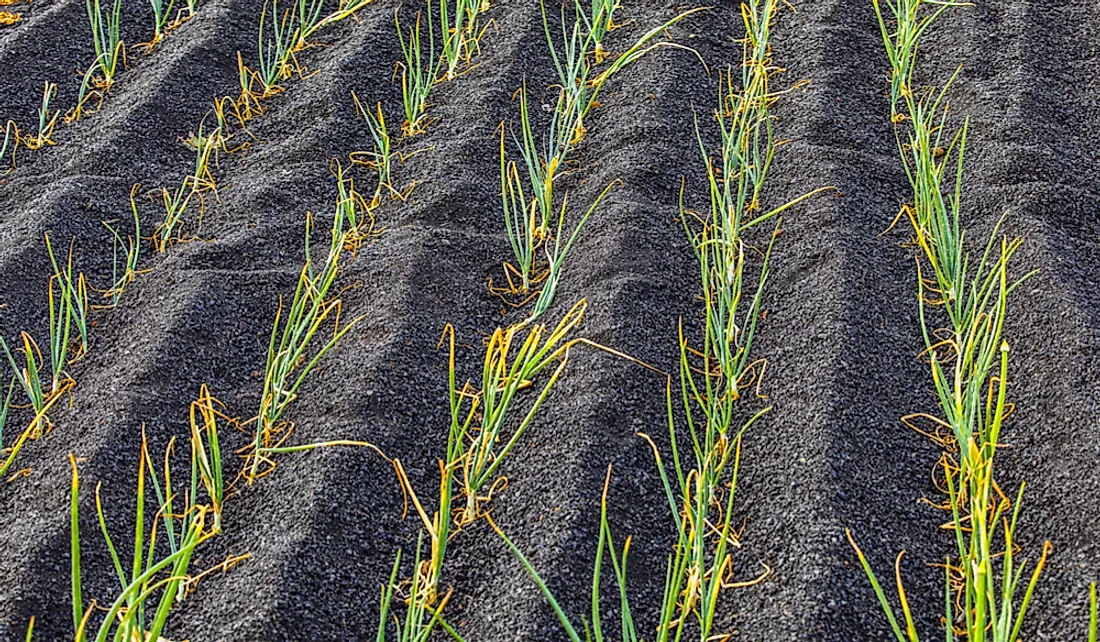Why Is Volcanic Soil Fertile?

Volcanoes can be destructive, but volcanic action can lead to the formation of fertile soils. Volcanic activity is traditionally associated with the destruction of lives and property because events such as eruption can decimate all living things. However, the process of eruption is characterized by different processes which ultimately lead to the formation of new materials including rocks and soil with volcanic soils formed through this process. They are among the most fertile in the world.
Soil Fertility
Volcanic eruptions result in the expulsion of ash which is spread out across wide areas both near and far from the volcanic mountain. Therefore, depending on the composition of the magma from a particular volcanic mountain, the resulting ash will have distinct amounts of soil nutrients. Silica and oxygen take up the largest percentage of elements released in the event of a volcanic eruption; other elements include carbon dioxide, sulfur dioxide, and hydrogen chloride.
Rock Particles
Another factor that contributes to elevated levels of fertility in volcanic soils is the bits of rock such as feldspar which have an abundance of minerals such as iron, magnesium, and potassium. These are some of the most important minerals found in fertilizers to improve the quality of agricultural soil. Because of the presence of these rock particles being incorporated into the soil, the regions that have volcanic soil, for instance, the valleys and mountain slopes are typically fertile.
Basalt
Geologists and soil scientists have also found that volcanic soils are primarily composed of basalt. Crystals of this particular type of soils are small and break down with ease in addition to having high quantities of iron. Other elements such as phosphorus and calcium in these easily weathered soils significantly contribute to overall fertility of the soils.
Deposition and Weathering
In regions near Mount Vesuvius, there are expansive tracts of fertile lands as a result of the volcanic activity thousands of years ago. The fertility of the soil in this region is attributed to the deposition of volcanic materials rich in minerals which are then broken down or weathered by erosion or action of water. In this state, they are easily absorbed into the soil to become a continuous supply of essential nutrients to the plants found in the region.
Volcanic Activity and Agriculture
Volcanic action leading to the emergence of fertile soils has greatly contributed to agriculture as an economic activity. In Hawaii, for instance, agriculture gained ground between the 15th and 18th century due to volcanicity and has grown ever since. Cultivation of food crops including sweet potatoes led to the growth of chiefdoms which had a huge influence on the societies of Hawaii as seen today.
Other Benefits of Volcanoes
In addition to fertile soil, volcanic action also leads to the formation of gems, precious stones and valuable minerals such as gold and uranium. These have a wide array of uses from making jewelry, electronics and weapon manufacture. Volcanism has also led to geothermal energy as an alternative source of energy which contributes a significant quota of electricity production in some countries like Iceland, Kenya, and the Philippines.











